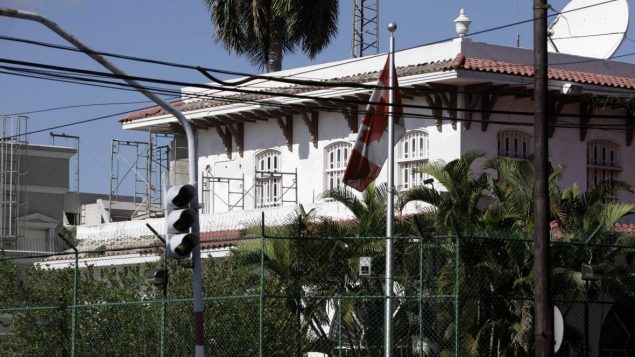Canada is forced to review its diplomatic presence in Cuba following another case of a mysterious illness among embassy staff that has baffled medical researchers in Canada and the United States, officials said Thursday.
“Global Affairs Canada has decided to review our operations in Cuba,” a senior Canadian official said Thursday, speaking on condition of anonymity during a background briefing in Ottawa. “Next week, senior officials will travel to Havana to do just that.”
While it is too early to say what steps might be taken, all options are on the table, the senior official said.
“We’ll be looking at our operations, we’ll be looking at our footprint of staff, and we’ll be looking at what is the impact of this new information that we’ve received,” he added when pressed to elaborate. “It’s difficult to speculate even on the breadth of the options that are out there.”
Strange symptoms
The latest case, which was identified in the early summer of this year, brings the total of Canadian diplomatic officials and their family members affected by the mysterious illness to 13, raising serious questions about the health and safety of Canadian diplomats in Cuba, officials said.
The individual, who cannot be identified for privacy reasons, has suffered a “constellation of symptoms” of what the media are calling the “Havana Syndrome,” officials said.
These symptoms include nosebleeds, nausea, dizziness, loss of balance, headaches, hearing and vision complications, and fatigue, officials said.
There is no identifiable pattern to these occurrences, first of which were reported nearly 18 months ago and then were followed by a long hiatus, officials said.
Global Affairs Canada has asked the Brain Repair Centre at Dalhousie University in Halifax, Nova Scotia, to examine the effects of the brain injuries and their possible causes, officials said.
Canada has also shared information with the University of Pennsylvania, which has taken the lead in examining U.S. diplomatic personnel and family members at the request of the State Department, officials said.
While most of the affected Canadian diplomats and their family members have been able to resume their normal activities, many are still struggling with the symptoms.
In April, Canada announced that diplomats posted to Cuba will not be allowed to bring in their family and children due to the ongoing uncertainty. Twelve Canadian diplomats are currently in Havana.
Joint investigation
Cuba, Canada and the United States, whose diplomats have also suffered similar symptoms, are conducting a joint investigation. On the Canadian side it is led by the Royal Canadian Mounted Police (RCMP) and on the U.S. side by the FBI.
“From the beginning, the government of Cuba has been co-operating,” a Canadian official said. “Cuba has expressed their desire to get to the bottom of the cause of these health conditions.”
Initially, the speculation had focused on some kind of acoustic or microwave attack. However, officials are now sceptical that a sonic attack is to blame.
“This is a new type of phenomena, we have been looking at each case and our approach has evolved as we learn more,” an official said. “But we still don’t understand or have identified what the cause is.”







For reasons beyond our control, and for an undetermined period of time, our comment section is now closed. However, our social networks remain open to your contributions.